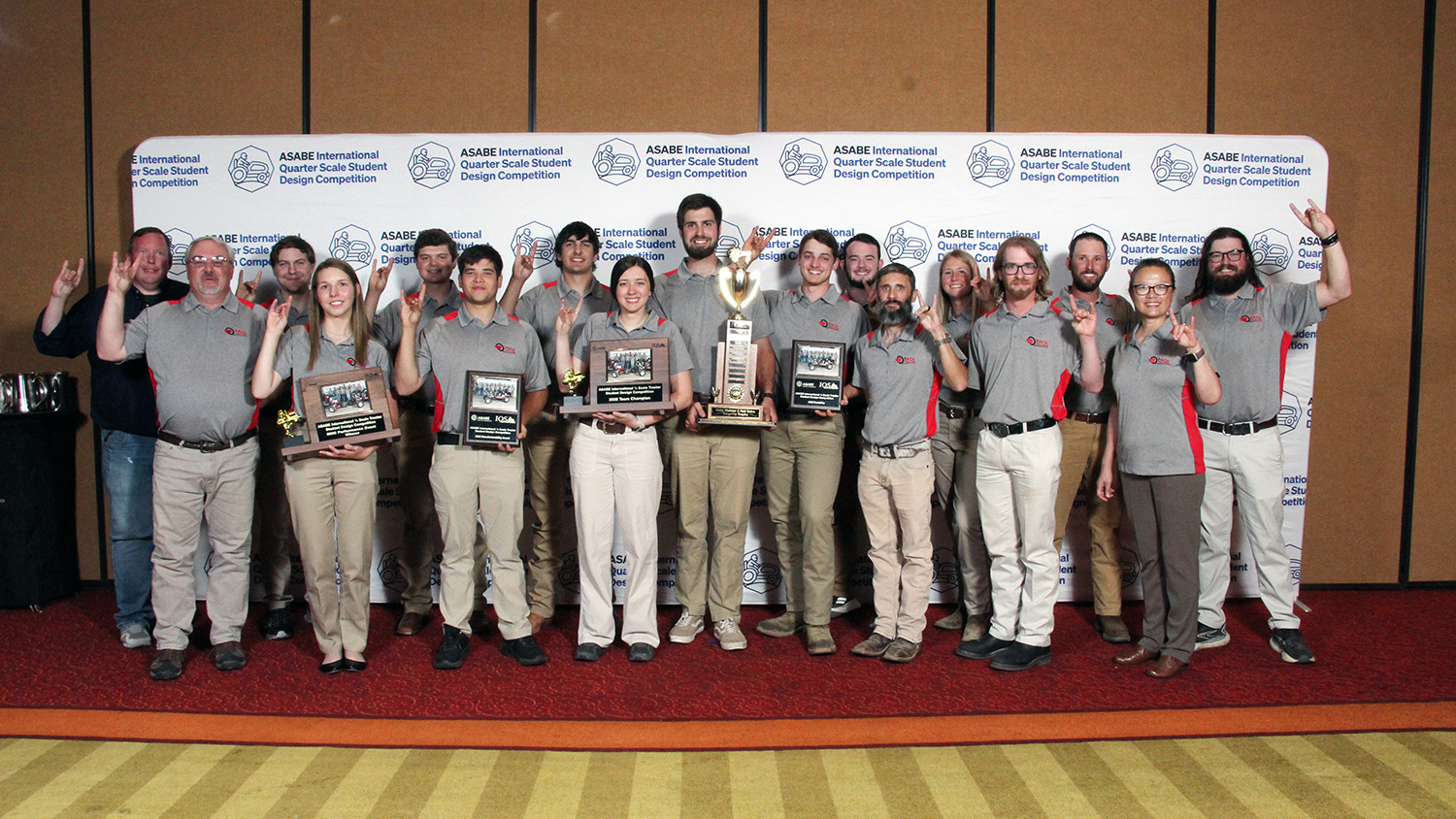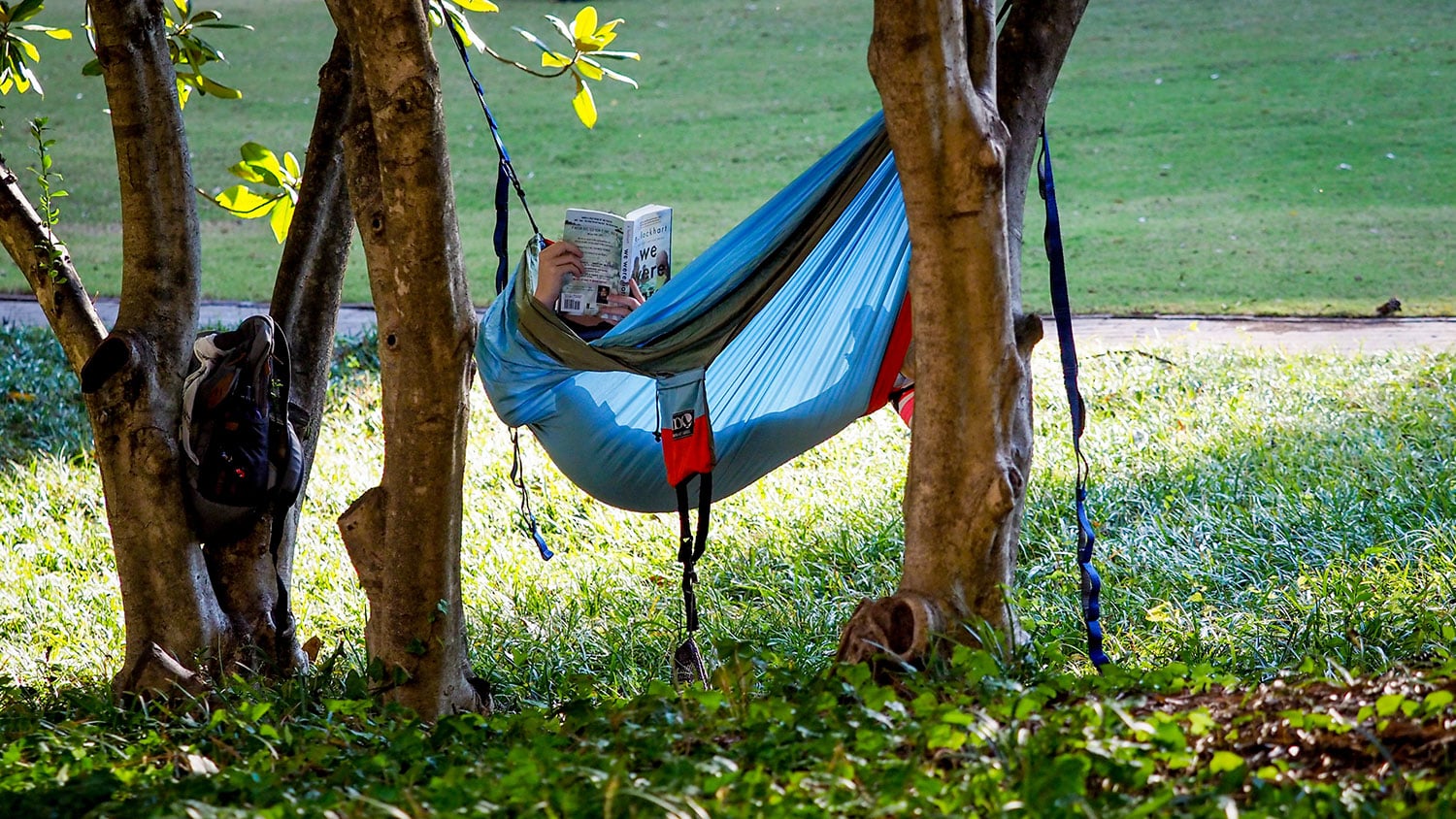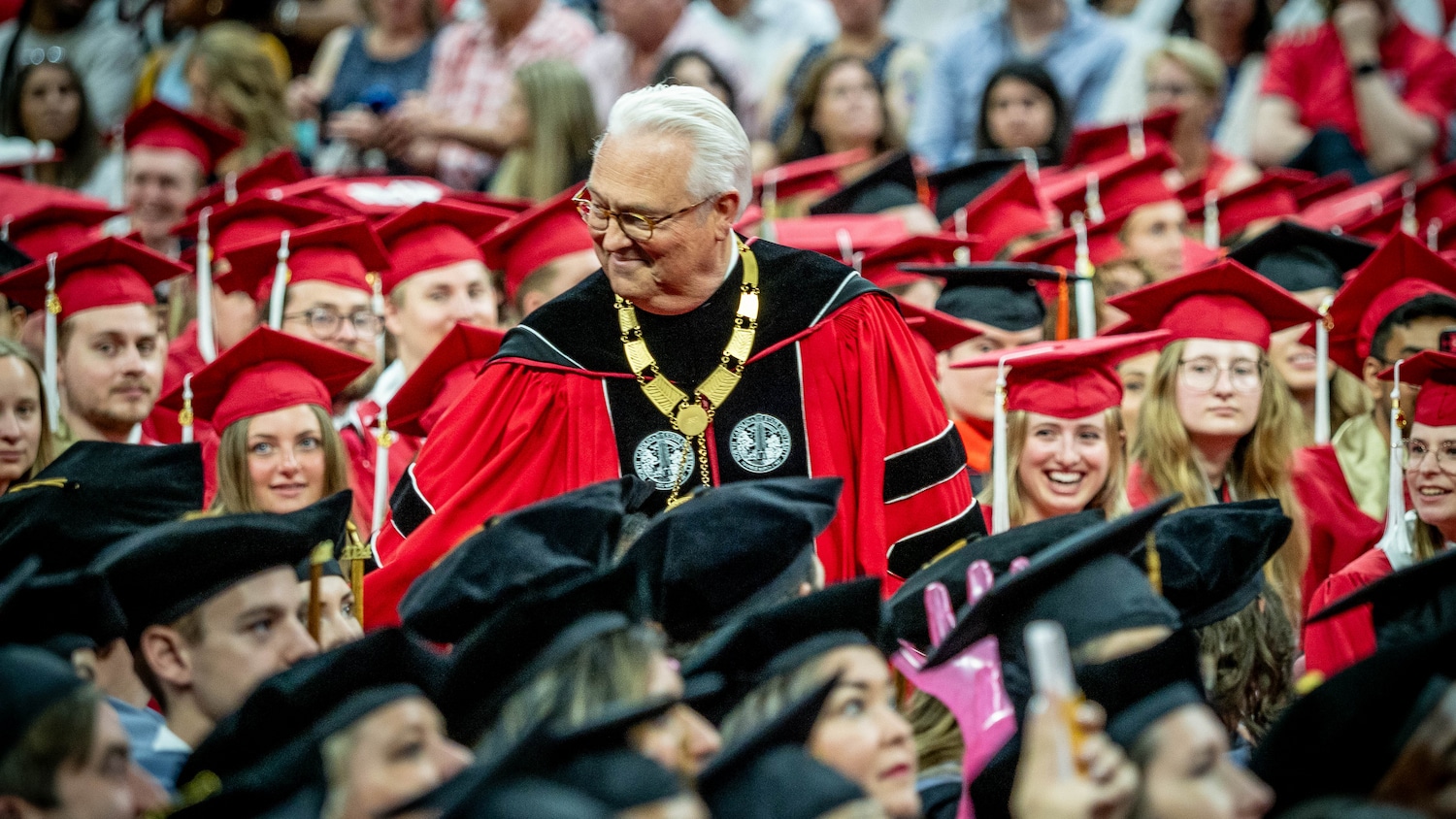Sending Off NC State’s Fall 2024 Graduates
We’re celebrating a whole new class of Wolfpack graduates. Meet a few of the students who will be earning their degrees this fall and find out how they’ve made the most of their NC State experiences.
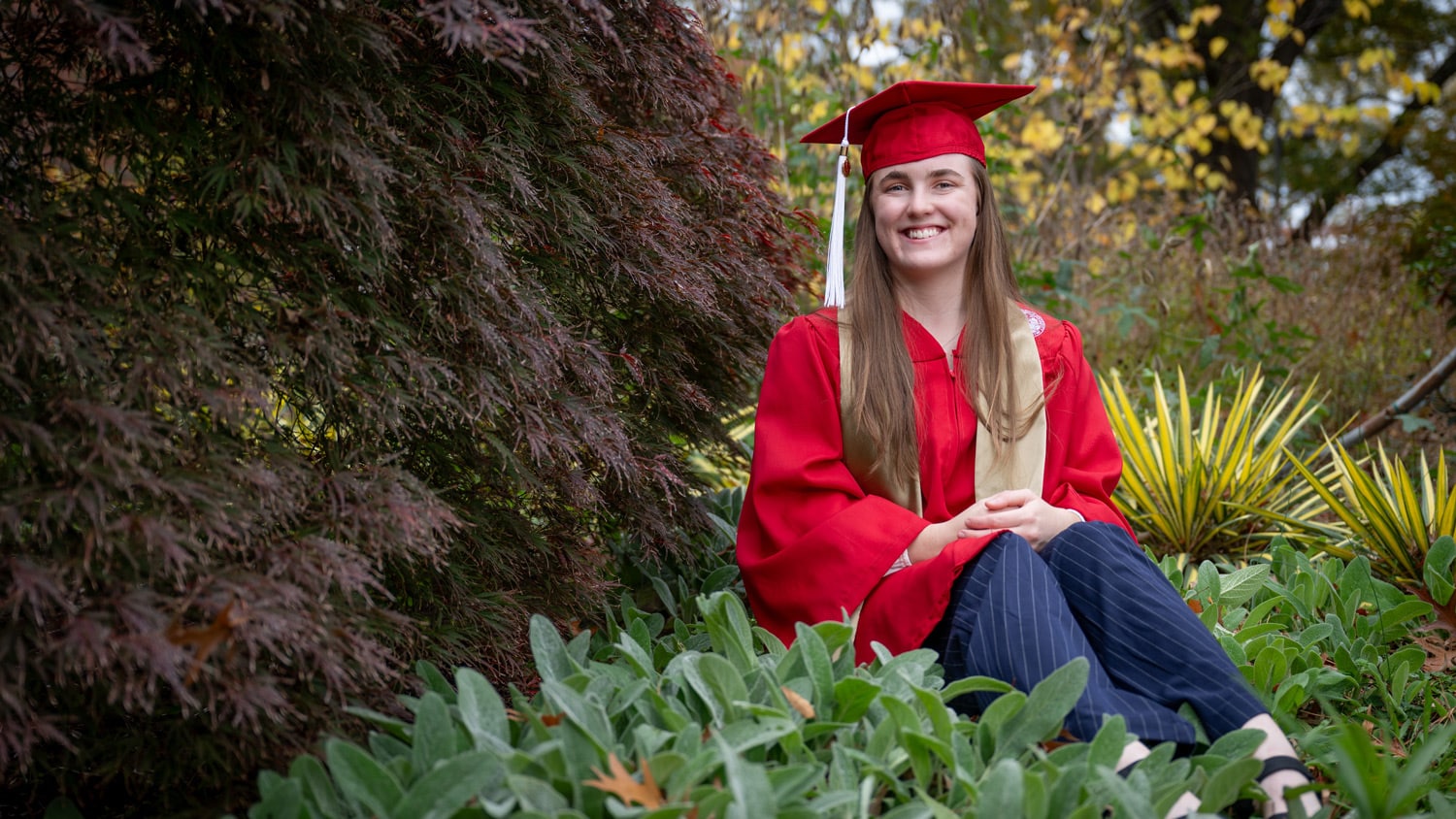
There’s no doubt fall is one of the best times to be part of the Wolfpack. It’s the season for finding your people and making lifelong friendships. For pumpkin spice lattes and crunchy leaves. For festive cheer and football games. And, of course, for congratulating a new class of graduates for all that they’ve accomplished.
3,315
fall graduates
3,439
degrees awarded
419
first-generation graduates
Our fall graduating class might be smaller than the class we send off in the spring, but their achievements are just as big. This semester’s class includes world travelers and wildlife researchers, experimenters and explorers, Park Scholars and plant lovers. Their experiences are diverse, but they all have one thing in common — they’ve used the fertile soil of an NC State education to grow toward their goals and prepare to Think and Do throughout their lives.
We spoke with four of these graduates to learn about the paths that have led them to commencement and find out where they’re headed next.
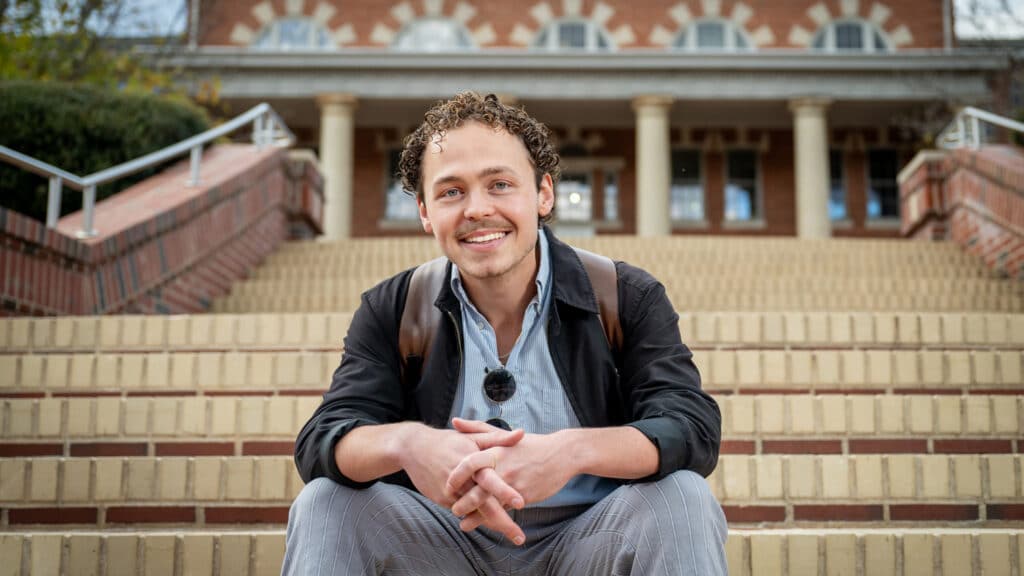
Elliott Gyll: Paving His Own Path
- Major: Linguistics
- Hometown: Santa Maria, California
- Fun Fact: He speaks 10 languages with varying degrees of proficiency.
For an NC State student — especially one who’s about to graduate — Elliott Gyll has spent surprisingly little time on campus. Between starting college during the COVID-19 pandemic and traveling extensively since then, Gyll estimates he’s only spent two full semesters on NC State grounds.
His most recent travel experience was in Tanzania. He earned a federal Boren Award to spend a year there receiving advanced training in Swahili. The excursion brings Gyll’s total number of countries visited to 67. The Park Scholars program has played a key role in making that possible.
“My first year, I was one of the few people in my Park Scholars cohort enrolled in a humanities program,” Gyll said. “It’s a majority STEM school, and beyond that, linguistics isn’t a common career path. So there weren’t a lot of mentors that aligned with my professional path, but the faculty and staff in the Park Scholars program have gone out of their way to be supportive.”
Gyll estimates he has secured between $20,000 and $25,000 in Park Enrichment Grants over the course of his time at NC State, which has helped fund many of his travels.
“Before college, travel was a bit of a pipe dream. I was unaware of the extent to which these programs were available and accessible at NC State,” Gyll said. “I think a lot of people have a preconceived notion that travel is inaccessible. So being able to do this during my undergraduate career changed that mindset for me.”
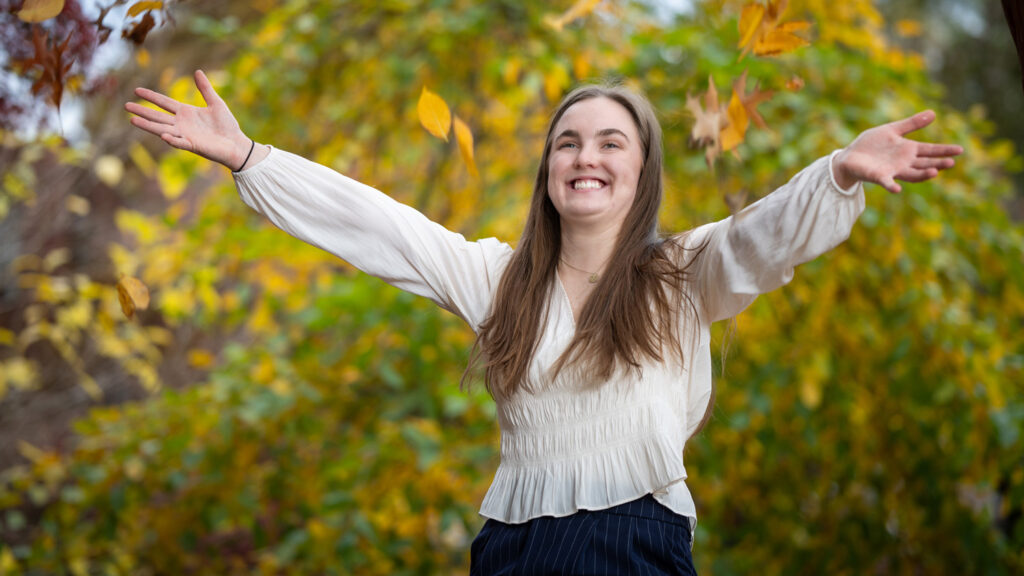
Lauren Turner: Sowing the Seeds for Success
- Major: Horticultural Science: Production Systems and Entrepreneurship in Horticulture concentration
- Hometown: Granite Falls, North Carolina
- Fun Fact: Two of Turner’s favorite plants on campus are the Woodland crocus behind Holladay Hall and the Deodor cedar located near the Memorial Belltower.
Lauren Turner’s interest in plants began as a hobby the year before lockdown, when she and her father planted a garden. During the pandemic, she mapped out a garden on her own. Turner has grown this passion for plants at NC State, which in turn has nurtured her.
She began her NC State journey in the Exploratory Studies program, which helped her navigate campus life and consider majors, despite her first-year experience happening primarily online because of COVID-19. By the time she finished a class with legendary Alumni Distinguished Professor of Crop Science Bob Patterson, who became a mentor, a career in horticulture made perfect sense.
“One of the biggest things I’ve learned is to be patient with myself and to open up,” she said. “I learned there are so many people here who will lift me up and help me. I’ve spent a lot of time in Williams Hall and everyone there has become like family.”
Turner spent summer 2023 as an intern with Orange County Extension, teaching elementary school-age 4-H campers about plants, and has done research with Adjunct Professor Thomas Sinclair in his crop and soil lab.
Private support including an Extraordinary Opportunity Scholarship has buoyed her, along with friendships built through Grace Christian Life student group.
After graduation, she will spend a few months working in Assistant Professor Emmanuel Torres’ vegetable production lab and teaching a class on fruit and vegetable production to Agricultural Institute students in the Department of Horticultural Science. Graduate school is likely next.
“I want to keep learning about plants, and I want to share and apply my knowledge in whatever way I can to improve other people’s lives,” Turner said.
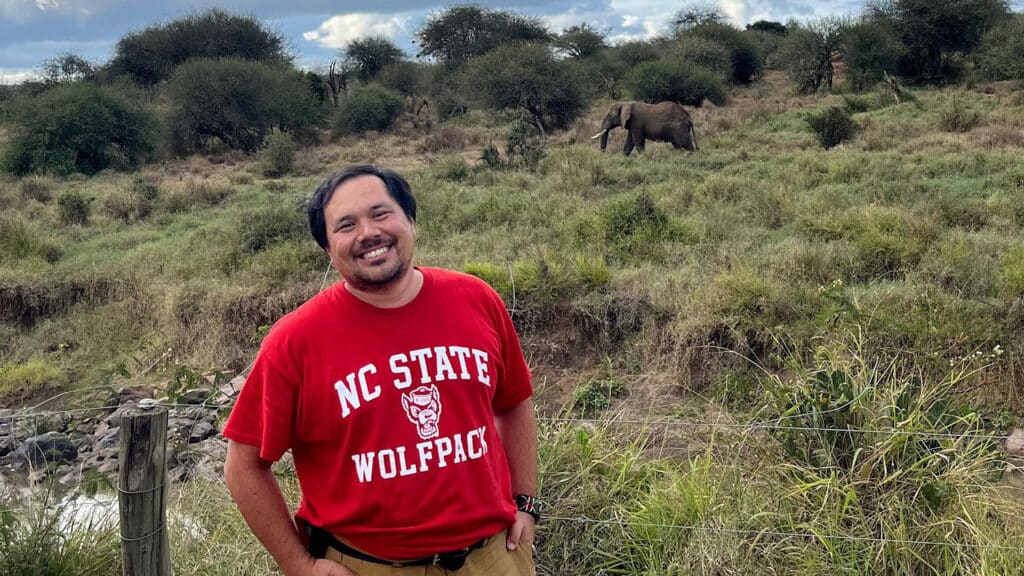
Matt Snider: From Pre-Vet to Postdoc
- Major: Ph.D. in Fisheries, Wildlife and Conservation Biology
- Hometown: Middlebury, Vermont
- Fun Fact: He met his College of Natural Resources mentor, Roland Kays, when they collaborated on research years before Snider arrived at NC State.
Matt Snider began his undergraduate studies in animal sciences back in 2005 at the University of Maryland, with plans to become a veterinarian. But a stint as a zookeeper’s aide at the Smithsonian National Zoological Park helped him discover his true passion — wildlife.
After earning his bachelor’s degree, Snider spent six years as a wildlife researcher in Africa studying the behavior of large mammals, including lions, hippos and gazelles. He then chose NC State’s College of Natural Resources to pursue advanced degrees in fisheries, wildlife and conservation biology.
“I came to NC State to gather the skills to answer more complex questions in my research,” Snider said.
Snider remained focused on Africa for his master’s studies, where he explored how animal populations shape — and are shaped by — their surroundings in species-rich hotspots like Mount Kenya, Africa’s second-highest peak. He built on these experiences as a doctoral student in Zambia and Namibia, deploying camera traps and drones to monitor populations of key species and help train local conservationists.
As he begins his postdoctoral research studying baboon behavior in Kenya with the Max Planck Institute, Snider credits mentors and collaborators at NC State and beyond for helping him apply the expertise he’s earned.
“They’ve expanded my perspective and helped me think more about the human side of things, and about how we can adopt emerging technologies to enhance research and build momentum for African-led, African-skilled conservation initiatives.”
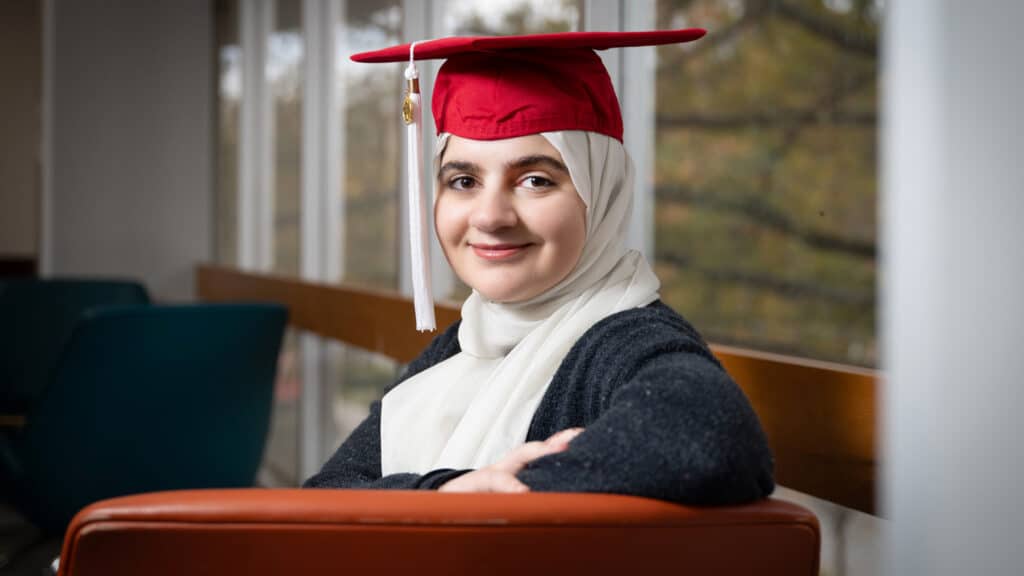
Sarah Salahat: Letting Curiosity Lead
- Major: Technology, Engineering and Design Education, concentration in graphic communication
- Hometown: Raleigh, North Carolina
- Fun Fact: She speaks Arabic.
Sarah Salahat wasn’t afraid to experiment to see what might stick. Her interests ranged, and she thought about majors in mechanical engineering, computer science, electrical engineering and business.
“I kind of went and picked a little bit of everything,” Salahat said, finding her way to NC State’s College of Education and fusing her many interests in the technology, engineering and design education program with a focus in graphic communication.
The graduate-to-be loved her major’s emphasis on applying design principles to making things in the real world. While she learned a lot about computer-assisted design, she also really enjoyed it when her instructor, Assistant Teaching Professor Parks Newby, had the class review design basics and manually draw objects to scale using algebraic math and 2D projection.
“There’s so many ways to create something,” Salahat said, who grew up enjoying puzzling through origami and other crafts with her hands.
She’s taken her experimental attitude into her job search as well. She received a job announcement for a client operations delivery analyst at Cisco in the Research Triangle Park, a position she kept an open mind about even though she didn’t initially tick off all the job application requirements. She applied, staying curious to see where it might lead, and got the job. She encourages other students to do the same.
“Never say no to yourself. Don’t deny yourself from even trying,” Salahat said.
- Categories:
